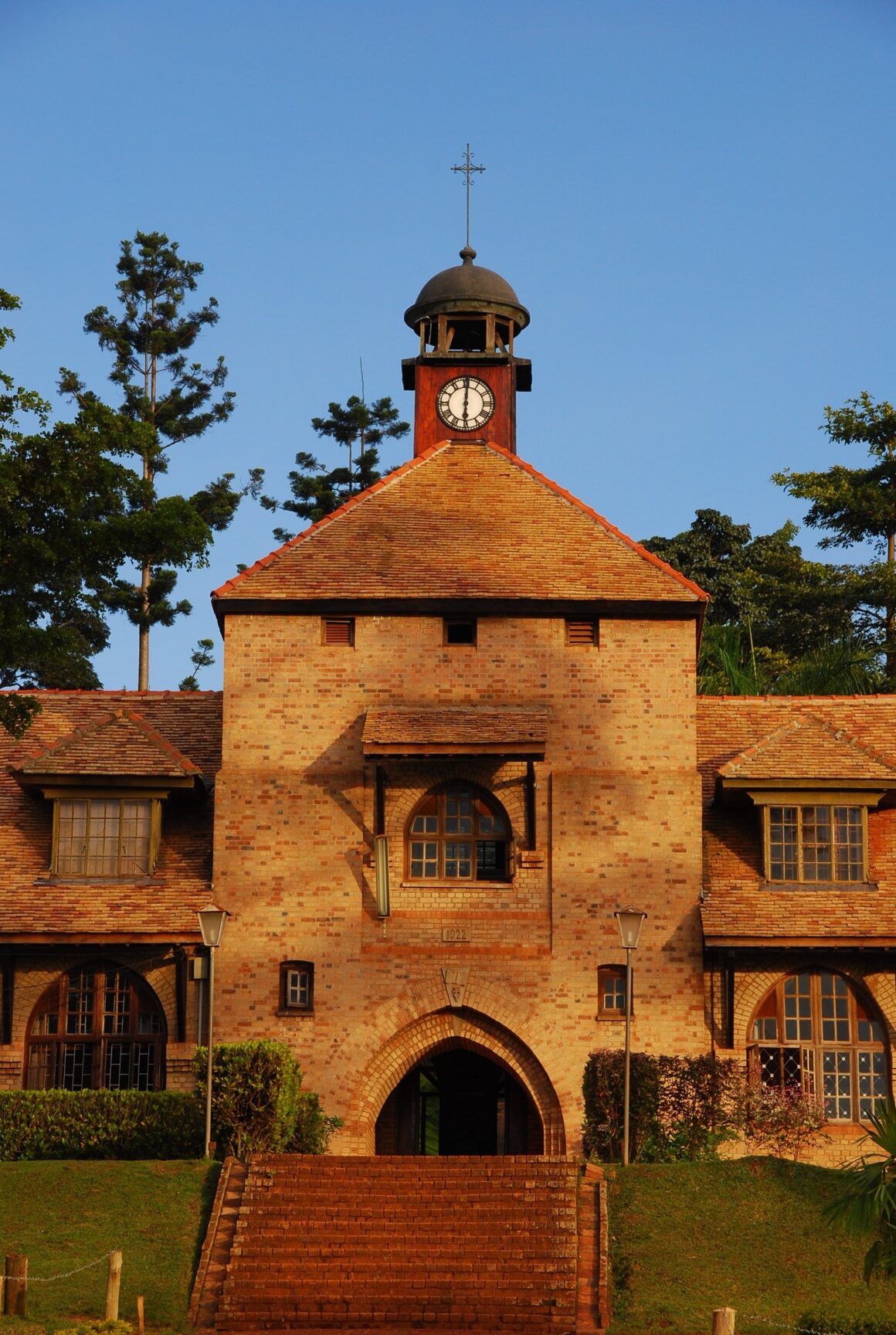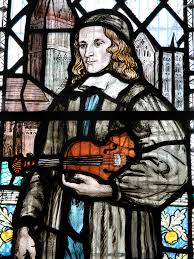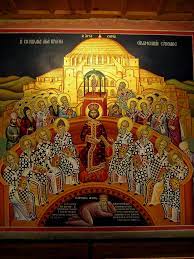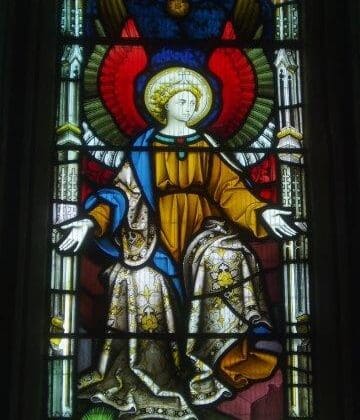Introduction
In 1997, the Anglican Church of Uganda took the bold step of converting its premier theological institution, Bishop Tucker Theological College in Mukono, into Uganda Christian University. Bishop Tucker College had a long and venerable history, having been founded in 1913, boasting one of the finest central buildings in Uganda (built from 1920-1925) and being the alma mater of most of the Anglican bishops in Uganda and also in Rwanda, Burundi and Congo. In light of this history, one of the founding intentions was for UCU to be “an authentically Christian university, not only in name but in substance.” Another motive was to preserve the heritage of Bishop Tucker College and its ministerial training program. This article is a brief reflection on the progress in the development of UCU.
Steps in Establishing the Christian Character of the University
Three main ways of establishing and preserving the Christian identity of the University can be summarized as follows: the first was to formulate a theological basis, which is called the “Instruments of Identity”.[i] This basis has three main sections: a Rule of Faith, a Rule of Life, and a Rule of Prayer. The responsibility of endorsing and upholding the Instruments was given to the House of Bishops of the Church of Uganda as the proprietors of the University. Originally, the intention was to incorporate them into the University Charter, following the example of Daystar University in Kenya. This idea proved problematic; instead UCU refers to the Instruments at key points in the Charter. This has given the University the leverage to resist any secularizing regulation from Government or external funders.
Thus, whenever the University hires new faculty or senior staff members, the routine has been to conduct a personal interview with regard to their Christian faith and practice and ask if they can affirm the Instruments ex animo. These Instruments are not specifically Anglican but rather express “mere Christianity” as understood by African Evangelicals; in fact, many faculty members at UCU are Pentecostals and some are Roman Catholics.[ii] Nevertheless, the Instruments are included in the official prospectus and are expected to be “publicly recognized,” by the students, part-time and visiting faculty. This two-tier level of commitment has had advantages. It has allowed the University to bring in some excellent faculty members who are not hostile to Christianity but who could not affirm the full-strength confession; this included a Mormon professor who came to us via the Fulbright program. At the same time, these part-time and visiting lecturers have no voice in the governing affairs of the University. As for the students, Daystar University’s policy of requiring each applicant to give a faith testimony as grounds for admission was rejected on grounds that it would open the door for hypocrisy on the one hand and close the door for evangelism on the other. Under these guidelines, the University has admitted Muslims and other non-Christian students.[iii]
Secondly, UCU started offering core courses in the faith. The idea of core courses was an innovation in the British/Ugandan curriculum. UCU developed eight “Foundation Studies” courses. Four were explicitly Christian in the areas of Bible, Christian worldview and ethics. The other four were more general, covering writing and study skills, computing Skills, basic mathematics, and a course in Health and Wholeness (which does have a religious component). These courses are required of all students in the University, not just the theologians. There was some resistance at first – “why do we have to take these courses outside our subject area?” – but over time they have been accepted by all and appreciated by many. Because these courses are taught through lectures and small groups, the university had to develop a cadre of tutors, some of whom come from the theology faculty, many of whom are UCU graduates.
Thirdly, there was a conviction that the University needed a dynamic chaplaincy program in order to breathe life into the skeletal structure of a Christian university. By God’s providence, Rev. Dr. John Senyonyi joined the faculty. Senyonyi had been working for a dozen years at African Evangelistic Enterprise, which was founded by Bishop Festo Kivengere. To top it off, Senyonyi has a Ph.D. in statistical mathematics! Thus, he provided just the dynamism that was needed for the university to see the numbers in the chapel grow from one hundred to a thousand. UCU worship is a freestyle Anglican prayer service, with one mission week per semester dedicated respectively to evangelism, a call to mission and ministry, and leadership.[iv] Senyonyi was later succeeded by several other talented pastors, and he succeeded Prof. Stephen Noll as the university’s second Vice Chancellor in 2010.
These steps have worked together to give UCU a good start to meet the vision of an authentically Christian university. UCU has a dual character of “Christian” and “university”, thus reflecting the motto “Alpha and Omega: God the First and the Last” and its vision to be “A Centre of Excellence in the Heart of Africa.” A Christian university is not merely a Bible school but an institution which looks to God as the source and end of all wisdom.
Problems along the Way
Despite considerable success in establishing the University as a Christian institution, there have been and continue to be major obstacles.
The first obstacle – attracting many nominal students – resulted from success. In 2004, UCU obtained the first Charter in Uganda under the Government’s enabling legislation (2001). After that date, the University became increasingly known in what is still a rather close-knit society. The law degree program, for instance, has proved very popular (what else is new!), as it was the first private degree program approved by the Uganda Law Society. As a result, the demand for entry has been increasing year by year. The growing reputation has allowed UCU’s programs to be filled and to be more selective in admissions (taking only one in five applicants in law). Such popularity means that some students are coming to UCU not because of its Christian character but because of its status. As noted above, UCU requires its students to “publicly recognize” our identity. One can guess that about one-third of the students are strongly committed Christians, one-third are practicing church-goers, and another third nominal, with a small number of Muslims.
One symptom of this luxury of riches in student numbers appears in worship. There are now about one thousand students at the major worship services on Tuesday, Thursday and even more on Sunday. That sounds wonderful, but it also means there are several thousand students who are NOT present. Another symptom of nominalism shows up in regular disciplinary cases of early pregnancy and drunkenness, especially among the majority who reside outside the campus. Of less moral weight but significant nonetheless has been the attempt to maintain dress standards. Many students (and parents) appreciate “smart” dressing, but others keep pushing the limit of “decency.”
A second obstacle has come in the area of pedagogy. There are two sides to this coin. To begin with, Uganda has been trapped in rigid models of teaching dating from colonial days. Many faculty members simply read from their notes, with the general goal of the courses being to prepare for exams. A number of seminars with faculty were conducted to address matters of pedagogy. There has been some progress but it has proved hard to break the mold. Secondly, almost none of the faculty has studied in a Christian university and hence they have little idea what it means to “integrate faith and learning.” In 2005 UCU received a grant for “Equipping Faculty to Integrate Faith and Teaching. “ Under this program a number of seminars were held on how lecturers might change their programs so that they are informed by the Christian worldview. The presence of visiting faculty from Christian colleges has also provided encouragement and good models of teaching. Dr. Senyonyi has continued the goal of making faith integration an ongoing priority, but there is still much work to be done.
One interesting sidelight has been the role of the US Fulbright Scholar program. The US Embassy in Uganda has been impressed with the degree of personal support these visiting Fulbright faculty have been getting on the campus, and hence they have recommended a steady stream of Fulbright Scholars from US universities. Some are Christians, some not. However, the overall impact has been quite salutary. One professor from Bethel University in Minnesota has worked with UCU for ten years to establish a bachelor’s and master’s degree in nursing, which is among the first and best in the country.
Integrating the Theology Faculty into the Wider University Community
One of the trickiest challenges has been to integrate the theological staff and program into the wider university. Part of this problem is historical. As the theological college predates the University, there has been a feeling of loss and even resentment, not only among the theology lecturers and students but among the bishops. They have repeatedly worried that the University is swallowing up the theology program and that the “secular” students are compromising the theological students.
Steps have been taken to try to minimize this sense of loss. First, UCU has preserved the former name of “Bishop Tucker Theological College” by naming its faculty the “Bishop Tucker School of Divinity and Theology.”[v] Secondly, the faculty has now reoccupied most of the original buildings seconded when UCU started. In particular, the theology library has been kept separate with the opening of the new University Library in 2011. Prof. Noll has also donated his theological library as a special collection for postgraduate students. Another significant area was to obtain scholarships for theology students. The student fees are divided into three portions so that the University, dioceses and donors can share the cost of theological education. Most of the students are on at least partial scholarship, and their numbers have gone up, from about 120 to 180, but the goal for the faculty to be financially self-sufficient has not yet been attained.
The main Bachelor of Divinity program continues to follow a rather traditional curriculum, but the faculty did take on several programs that are not aimed at ordination. The University worked with World Vision and other Christian development agencies to offer a degree on “Child Development and Children’s Ministry” overseen from the theology faculty. Early on, the faculty staffed much of the religious core courses and the theological students took those courses; however, more recently the theologians have withdrawn on grounds that these courses are not sufficiently rigorous for theologians.
Finally, the lower-level diploma course has been transferred to regional campuses and the faculty has added master’s and doctoral-level courses. The Master of Divinity degree is aimed at graduates with bachelor’s degrees in other subjects; this program actually attracts more younger students than the traditional B.D. degree. A Doctor of Ministry course has been offered in conjunction with Trinity School for Ministry in the USA. Students go to the USA for four weeks of intensive courses, and the rest of the work is done at UCU or on site in Africa. In addition, UCU has begun offering a “Ph.D. by research” degree. While there is some concern whether the faculty has adequate personnel and library resources for a doctoral program, there is a need for doctoral programs in Africa, particularly in Evangelical institutions. Many fellowships, like the Langham-John Stott program, are seeking to place students in Africa. A couple of Bishop Tucker faculty did their doctorates at University of KwaZulu-Natal in South Africa. Nairobi Evangelical School of Theology is probably the best residential option in East Africa, but it requires four full years in residence, which has been difficult for many candidates.
The integration of the theological college into the University has been a success in many ways and, as argued below, the finances involved make it a necessity. There has, however, been continued resistance, both from the Bishop Tucker faculty and the university, in seeing theology as an integral piece of a broader university curriculum. Some undergraduates complain that “the reverends” get special preference, which is partially true. The tension has showed up in the annual campaigns for Student Guild President, which often pit a theological student against a law student. There has been a feeling among the ordinands and clergy that the Bishop Tucker School should be separate from the other faculties. Part of this attitude is a practical matter; for instance, it is hard to ask four married men to share bunk beds in a room built for 20-year-old students (many theological students are married and come without their spouses). There is a case to be made for some separation as part of clergy formation. But there is also an unfortunate “we/they” attitude that seems embedded in the culture of the Church of Uganda, partly due to the holiness (balokole) tradition. This barrier of separation needs to be broken down in order to embrace theology as a vocation for the whole of God’s people.
Financing Christian Higher Education
The daunting question is how to finance the education of Christian leaders. The example of UCU constitutes both an encouragement and a challenge. In 1997, when Bishop Tucker College was only a theological institution, its operating (recurrent) budget was about $135,000; its capital budget was about the same, and much of its non-fee income came from overseas sources, such as the Anglican Church of Canada and the Episcopal Church USA.[vi] As of 2011, UCU’s operating budget is about $10 million and its capital budget about $4.5 million. Within the Church of Uganda, UCU is the goose that laid the golden egg.
What may be more striking is that the growth in the operating budget has come largely from within; about 95% comes from tuition and other fees. The largest single private donation UCU received over the decade was $100,000. From 2000-2010, the University received a number of generous five-figure ($) gifts from churches and private foundations, but nothing like the kind of donations received by comparable US institutions.
The most successful arena for financing has been scholarship aid.[vii] The University has managed to source almost 1,000 scholarships per year by the time Prof. Noll retired in 2010. That was admittedly only 10% of the total student population, but it was significant all the same. Compassion International must be praised in particular for its visionary “Leadership Development Program,” which extended the personal support for underprivileged and high-achieving students through the grade school years all the way through university.[viii] The LDC program has given full scholarships to over 200 students per year at UCU.
University heads frequently lose sleep over the question of how to continue funding the high cost of quality tertiary education, with Ph.D.-level faculty, high-tech labs, and costly infrastructure. This insomnia has been fully experienced by the leadership at UCU. Help has come in the form of a land asset. . Hamu Mukasa, Deputy Prime Minister of the Buganda Kingdom and an early benefactor of the Church of Uganda, gave one square mile (650 acres) of undeveloped land to the theological college in 1921 separate from the 86 acres of the campus. The first CMS Warden of the College likened this land to the endowment of an English public school. Unfortunately, neither the Church nor the College properly followed up on this insight, and today about 250 acres are occupied by “bona fide occupants” a.k.a. squatters with squatters’ rights. Since his retirement in 2010, Prof. Noll has been heading up a University-owned company to develop 250 acres of clear land as a planned residential community, with the basic goal of providing an alternative income stream to the University.
Returning to the question of financing ministerial education, the Bishop Tucker School of Divinity and Theology, despite the tensions involved in giving over its campus to the University, has benefitted greatly from the development of the University. Its faculty is paid at base rates comparable to the other staff.[ix] Its facilities have been renovated. Most of its students are on partial scholarships and “international students” from East Africa have continued to come to Mukono to study.
In fact, one might generalize from this situation : The future of stand-alone theological colleges in Africa is grim indeed. Most of the smaller theological colleges either fail or survive on a starvation budget. A couple of these institutions have moved in the same direction as Bishop Tucker and UCU. For instance St. Paul’s United Theological College in Limuru, Kenya, has now added programs and become St. Paul’s University[x], while retaining its theology faculty; and NEGST, which was founded as a postgraduate institution only, has now become Africa International University[xi], with bachelor’s degrees in Theology, Psychology and Counseling and Business Administration. Other churches, have founded universities apart from their theological colleges. The Anglican Church of Tanzania has founded St. John’s University of Tanzania in Dodoma,[xii] while retaining St. Mark’s Theological College in Dar es Salaam and St. Philip’s College in Kongwa (the latter only 75 km from Dodoma). In Nigeria, Ajayi Crowther University[xiii] in Oyo and the Crowther Graduate Theological Seminary in Abeokuta are both rebuilding on earlier foundations and are about 125 km from each other. The same pattern can be seen in Uganda, where the Roman Catholics founded Uganda Martyrs University in Nkozi[xiv], the site of a former secondary school, whereas their priests’ seminary remained separate in Ggaba. The pattern seems to be that stand-alone universities have difficulties establishing a strong Christian identity while stand-alone seminaries struggle financially.
Anyone who has read George Marsden will be immediately cautious about the idea of merging theological faculties with a large university, as that pattern led in the previous century to the secularization of the university and the liberalization of the theological faculties.[xv] But that need not be the case. A chastened second generation of Christian colleges has learned the lesson that universities and even seminaries need to be intentional in their commitment to the Christian faith.
In 2000, UCU joined the Council for Christian Colleges and Universities as its first African affiliate. Since then, five other African universities have become CCCU affiliates, along with 68 other colleges and universities around the world. Most of the USA institutions are small liberal arts colleges, whereas many of the global south universities are large full-service universities. The US institutions are focused on their own issues, such as protection from adverse legislation in the U.S. Congress, whereas the global universities face different challenges. The CCCU’s most successful linkage has been in the form of Study Abroad programs[xvi]. While most CCCU programs are independent of a Christian university, UCU has been privileged to host the Uganda Studies Program, which brings about 75 US college students per year to study and live on campus and in nearby homes. Many people in the West have stereotypes of Africa as a nest of problems, but at UCU, American students can experience a campus-like atmosphere with African students who share their faith and the desire to better themselves through education. The Uganda Studies Program finances itself while bringing in a nice income for the University.
In conclusion, financing theological education in Africa presents a daunting challenge. Christianity is spreading rapidly in Africa. Much of this is happening outside the old-line missionary churches, in Pentecostal and African Independent churches. These churches may have some Bible schools, but often they have nothing at all to train their clergy. In Uganda, Evangelicals tried to reach out to Pentecostal pastors through Kampala Evangelical School of Theology, but that project has been plagued with financial shortages.
Partnerships
In April 2000, UCU founded a USA-support society called Uganda Christian University Partners, with the motto “thankful for your partnership in the Gospel until now” (Philippians 1:5).[xvii] The Uganda Partners organization has proved a great agency for linking U.S. donors to Ugandan students for scholarships. It also served as the US-based applicant for the American Schools and Hospitals Abroad (ASHA) program of USAID, one of the few foreign aid programs that actually contributes to “bricks and mortar” projects. Over the past decade, UCU received about $2 million from ASHA toward a men’s residence hall and the University Library.
There has been another trend worth noting: almost every Christian ministry and development agency has an educational component, and a university alone is able to credential that need. Let me list several of these briefly:
- In 2000, UCU agreed to offer a diploma in health administration to students of the International Christian Medical Institute (ICMI)[xviii], a charitable society based in Western Canada. These students are usually employed hospital administrators who are upgrading their education in a modular program. In the next decade, ICMI helped build an office-classroom block on campus and a Director’s house-guest house complex. It has added a bachelor’s degree, and its students now take the UCU core courses as well as the ICMI specialized courses.
- In 2004, the University was approached by Dr. Jean Chamberlain Froese, a Canadian missionary doctor with a passion for educating Africans about issues of maternal and child health. The agreement was made to locate the “Save the Mothers” program at UCU[xix]. Since 2005, Save the Mothers has been offering an innovative modular “Master’s in Public Health Leadership” degree to professionals in Uganda. As with ICMI, Save the Mothers has helped build an office classroom block and a residence for Froese and her family.[xx]
- As UCU developed its “Mass Communications” degree, the University was approached by the “Words of Hope” radio ministry[xxi] based in Michigan, which produces vernacular Christian programs in Uganda and Sudan. Once again, Words of Hope built an office recording studio along with classrooms for the UCU students of Mass Communication.
In addition to these standout partnerships, many retired scholars or faculty members on sabbatical leave have enjoyed a stint on campus. One Australian professor of engineering ended up helping build the University water and waste water systems. At one point the University retained two lecturers teaching the “Elements of Mathematics” core course, one with a Ph.D. in mathematics and another with a Ph.D. in physics. Throughout the past decade UCU has enjoyed short-, medium- and long-term missionaries participating in various academic and practical aspects of the University. There is clearly a potential of expertise to be tapped from professionals in the West who wish to make a difference and enjoy the Eden-like setting of the UCU campus.
Conclusion
Christian higher education is derived from Christ’s Great Commission to “make disciples of all nations.” This gives it an evangelistic imperative. Paul Scotchmer has rightly argued that Christian universities are a “mission strategy”[xxii].The mandate to “make disciples,” taken together with the desire for higher education, which is global in scope and at times verges on idolatry, has meant that well-run universities in poorer countries can flourish, even without massive investments from the West. In Uganda, most of these private universities have a religious foundation: Anglican, Roman Catholic, Nazarene, and Seventh Day Adventist. If properly managed, these institutions can share the wealth with a theology faculty and also reach out to the wider student community. A final reason for seeing the university as the proper place for the Christian mission: God is the foundation of all truth.
ENDNOTES
[i] http://ucu.ac.ug/abt-ucu/background/identity-instruments
[ii] There was a lengthy discussion about a Seventh Day Adventist candidate and it was decided he could join if he were prepared to teach necessary classes on Saturdays.
[iii] Muslim students must take the religious core courses, including “Forming a Christian Worldview,” on the understanding that they will be graded according to their knowledge of, not commitment. We have never had a major problem with this position.
[iv] UCU runs a year-round calendar in which students attend two out of three semesters.
[v] Bishop Alfred Tucker was the first missionary bishop of Uganda (1891-1911).
[vi] Since 2003, the Church of Uganda has resolved to receive no funding from those North American churches.
[vii] Looking at scholarships from a purely bottom-line perspective, they do not directly fund the university.
[viii] It was found deucedly difficult to award need-based scholarships in Africa due to the lack of concrete financial data and the complex network of the extended family. Most really poor students never make it past primary grades because the state-run schools are so inadequate.
[ix] Some faculties, like law, award staff “comparability pay” beyond the University basic salary.
[xi] www.africainternational.edu.
[xv] Marsden, The Soul of the American University: From Protestant Establishment to Established Unbelief (Oxford UP, 1996).
[xvi] See www.bestsemester.com.
[xvii] Similarly, Daystar US has been assisting Daystar University over the years.
[xx] Dr. Chamberlain’s husband employed his journalistic skills by helping to found The UCU Standard, the only campus newspaper in Uganda.
[xxii] Paul Scotchmer, “Plant Universities: Universities as a Mission Strategy,” http://www.missionfrontiers.org/issue/article/christian-universities-as-a-mission-strategy.
This essay is a revised version of an address given at the Overseas Mission Study Center in New Haven, CT, in April 2012.





